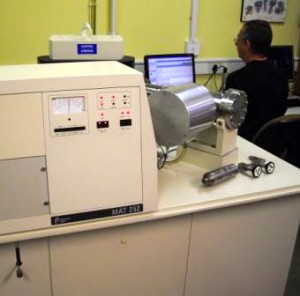Stable isotope analysis has a huge range of applications including understanding the food histories and lifeways of past peoples and the animals they shared their landscapes with. I hope to use the ratio of naturally occurring stable isotopes (δ13C, δ15N, 18O / 16O and 87Sr, 88Sr) to evaluate whether historic and contemporary patterns observed in livestock and pastoral mobility are consistent in the Amboseli basin over the last 500.
I spent most of the month of June 2014 at the University of Cape Town learning about stable isotopes. The month kicked-off with a week long intensive course offered by the Stable Light Isotope Facility, in collaboration with the Archaeometry Research Unit and Departments of Botany, Geological Sciences, and Oceanography at UCT.
The remainder of June was spent in the Stable Light Isotope laboratory under the supervision of Professor Judith Sealy, and at the Stable Isotope Laboratory of the Department of Geological Sciences learning about isotope analysis from the UCT community and visiting scholars. One such scholar was Dr. Ashley Coutu, an Historical Ecologies of East African Landscapes (HEEAL project) alumni. Dr. Coutu applies stable isotope analysis to historic elephant populations in East and South Africa to understand the human and environmental consequences of the ivory industry.
I was fortunate to learn a variety of laboratory techniques for preparing and processing ivory, bone, and tooth enamel for stable isotope analysis. In addition, I had the opportunity to discuss and develop a plan for applying stable isotope analysis to archaeological material in the Amboseli basin. Many thanks to the Stable Light Isotope Facility and the UCT archaeology community!
